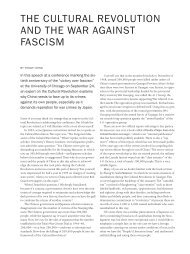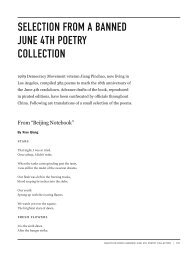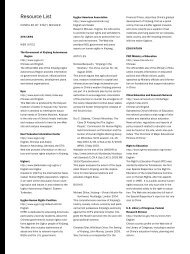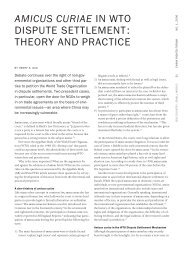STATE SECRETS: CHINA'S LEGAL LABYRINTH - HRIC
STATE SECRETS: CHINA'S LEGAL LABYRINTH - HRIC
STATE SECRETS: CHINA'S LEGAL LABYRINTH - HRIC
You also want an ePaper? Increase the reach of your titles
YUMPU automatically turns print PDFs into web optimized ePapers that Google loves.
In this report, we have attempted, as much as possible, to use the English names of<br />
government bodies in the People’s Republic of China as found on their Web sites<br />
or in official publications. The difficulty in doing this in regard to state secrets bodies,<br />
however, is that firstly, state secrets bodies at the provincial and municipal levels<br />
(all called 保密局 in Chinese, or “protection of state secrets bureau”) often do<br />
not have English translations of their names; and secondly, if they do have English<br />
names, there is a lack of consistency in the way the name is translated. For example,<br />
the Guangdong Province state secrets body (广东省国家保密局) calls itself the<br />
“Administration for the Protection of State Secrets of Guangdong Province,” but<br />
the equivalent Jiangxi Province state secrets body (江西省国家保密局) calls<br />
itself the “Jiangxi State Secrecy Bureau.”<br />
Furthermore, there is a lack of consistency in the way foreign NGOs refer to these<br />
bodies, particularly the national-level state secrets organ (国家保密局), which<br />
many organizations refer to simply as the State Secrets Bureau—but whose official<br />
English name is the “National Administration for the Protection of State Secrets.”<br />
Therefore, in the text of this report, we have chosen to use the national body’s official<br />
name, or its abbreviation, NAPSS. State secrets bodies at the provincial and<br />
municipal level are translated as “bureau” and at levels lower than the municipal<br />
level, “department.”<br />
A phrase found in a number of the laws and regulations in Section II: State Secrets<br />
Laws and Regulations of the PRC is the rather vague term 国家保密工作部门.<br />
This literally translates as “National Protection of State Secrets Work Department,”<br />
but it does, in fact, also refer to the “National Administration for the Protection of<br />
State Secrets.” Therefore, when translating this term in the various laws and regulations<br />
in Section II, because it is not the official name of the body in Chinese<br />
(国家保密局) but rather a generic term, we have used the more generic-sounding<br />
“national State Secrets Bureau.” When there is mention of a 保密工作部门 at the<br />
provincial or municipal level, we have simply used the lower-case “state secrets<br />
bureau.”<br />
In translating the different classification levels of secrets that exist in China, we<br />
have opted to use the following terms: The highest level of secret (绝密) is “topsecret,”<br />
the next highest level (机密) is “highly secret” and the lowest level (秘密)<br />
is “secret.” The purpose of translating the classification levels in this way is to<br />
reflect the comment element in the Chinese terms (密) and to provide the reader<br />
with an immediate grasp of the hierarchy between the three.<br />
The glossary at the end of this report contains a full list of terms related to state<br />
secrets in Chinese and English, as well as a bilingual list of government bodies and<br />
state secrets laws and regulations cited in this report.<br />
All of the laws, regulations and other documents presented in both Section II and in<br />
the Appendices of this report are original English translations produced by <strong>HRIC</strong>.<br />
Translator’s Note<br />
TRANSLATOR’S NOTE vii







